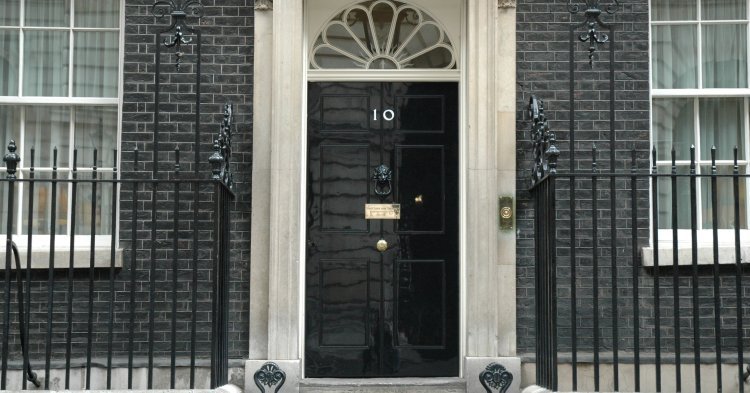A huge majority: a free rein
The Conservative “electoral machine”, as it is so often nicknamed, is pumping iron. Their slogan “Get Brexit Done” struck a chord with a public frustrated with the deadlock, flogging the impossible fantasy of a quick-fix solution. They made huge gains in Labour heartlands in Wales, Northern England and the Midlands, where Leave voters, disappointed with Labour’s indecision on the issue, flocked to turn the most deprived areas of the country blue. Take Blyth Valley, a northeast mining town devastated by Thatcherism: Labour to its bones. It has now returned a Conservative MP for the first time in its history.
This huge electoral victory is a sad turn of events for democracy. 88% of online ads used by the Tories were misleading or false, as were many core promises of the campaign. Conservative leaflets, for example, promised 40 new hospitals, while a more detailed look at plans reveals that funding pledged would perhaps fund some renovation or new facilities in six existing hospitals. His picture-perfect painless solution for Brexit ignores the fact that Britain’s new relationship with the EU is left entirely unclarified, opening the door for severe damage to the economy which will disproportionately impact the most vulnerable.
However, with half again as many seats as the next biggest party, the Conservatives will face little meaningful scrutiny. Opposition parties will have far fewer opportunities than under Theresa May to water down legislation. What is doled out of the British Parliament over the next five (and, given the size of the majority, probably ten) years will be pure, hard-right, unsweetened Conservative.
Boris Johnson: the unelectable, elected
The Prime Minister’s behaviour during the campaign oscillated between rambling speeches, in which xenophobic undertones were as densely packed as untruths, and seeking to avoid genuine scrutiny altogether. From refusing to be interviewed by BBC journalist Andrew Neil, to refusing to attend Channel 4’s climate change debate (with macabre humour that this editor applauds, they replaced him with a melting ice statue), going as far as hiding in a fridge to avoid another TV interview, Johnson ran scared from being held accountable by the media. Yet despite this, and to an extent that is very indicative of dire bias of the British press, tabloids continued to support his every move. His vows such as stopping migrants “treating Britain as their home” is an appalling racist insult aimed at the millions of EU and non-EU citizens who contribute to British society. He shows a total lack of empathy for anyone outside of his cocoon of private school privilege.
Boris Johnson, in short, appeared to do everything he could to put voters off. And yet the British voted for him in droves.
Where did it go so wrong for Labour?
The 203 seats won by Labour represent one of the worst results for the party since the Second World War. Jeremy Corbyn, whose name was sung at music festivals in the run up to the 2017 election, inspired many young people with a vision of a fairer, socialist Britain. His promises of scrapping high tuition fees and providing free broadband and better funding for public services were endorsed by 163 economists in a letter published in the Financial Times - hardly a left-leaning rag.
Yet his leadership and judgement have proved appalling and turned many, especially older, voters away from the party. Dogged by allegations of antisemitism, and failing to address voters’ concerns about the cost of pledges on public spending, which appeared particularly lavish after a long period of austerity, Corbyn was weakest on Brexit. This made it easy for the Conservatives to champion the issue, while Labour haemorrhaged Leave voters, seduced by the deliberately misleading Conservative promise of a rapid exit. Labour never grew out of its clash between its pro-European membership and the electoral weight of Leave voters in Labour heartlands. The party has utterly failed to grasp the cultural significance of this issue and, in consequence, has been a flimsy opposition party ever since the referendum. Labour MPs are taking to Twitter to start the blame game. Those loyal to Corbyn blame Brexit; the more centrist blame Corbyn. Corbyn has already stated he will not lead Labour into another election; this editor predicts that he will be gone within a week.
Last night’s result indicates that the real left is unelectable in a modern Britain wooed by the narratives of unavoidable austerity, exaggerated national greatness and a neo-American culture of individualism, all cobbled together by a press that is incapable of holding the establishment to account. Since the Thatcher days of welcome mats for free markets and globalisation, only Tony Blair has managed victory for Labour - by campaigning on a relatively centrist platform. The left of the present day will have to wait five long and painful years to try again - when Corbyn goes, they are likely to drift back towards more fertile central grounds.
Leader of the Liberal Democrats loses her seat
Jo Swinson, who at first seemed a breath of fresh air, a young, progressive, female candidate educated at a comprehensive school, fared badly in the campaigns and results. Ousted from her seat in Scotland, she immediately quit as leader of the centrist party which had been the strongest voice for Remain in Parliament.
A similar fate beset former Lib Dem leader Nick Clegg in 2017. Following the results, Swinson admitted in her speech that the national results would be bring “dread to millions” but that she still believed that the UK could be “warm and generous, inclusive and open”. Her decision to make revocation of Article 50 was a bold one, yet was perceived by many as undemocratic, while her refusal to contemplate the idea of an electoral pact disappointed many Remainers.
A broken system
The first past the post system has once again produced an appalling reflection of the wishes of the Britain electorate. The Conservatives have the most votes, with almost 14 million gaining them 364 seats. Yet Labour, with 10 million, will be underrepresented with their 203 seats. Even worse in propotional terms, the Lib Dems, with 3.6 million votes, have won just 11 seats - their MPs will make up just 1.7% of the Parliament. It is an absurd proportion for a party which gained over a quarter of the number of votes of the leading party.
It is a system in which there is a strong incentive to campaign and vote tactically. In Cheltenham, for example, a Remain-voting city where the Lib Dems were not far behind the Conservatives in 2017, a progressive and pro-Remain victory would have been possible. Yet the Conservatives obtained 28,486; the Lib Dems reached 27,505 and Labour lagged behind at 2,921. Tribal party politics dominated, and progressive forces, despite holding a combined majority, lost out - leaving their votes unrepresented and forgotten.
What does this mean for Brexit?
The anguish of Remainers is very raw. The failure of tactical voting, the steadfast refusal of progressive, pro-European parties to form any form of electoral pact, and the complete lack of courage by Remain leaders to allow their candidates to step down to allow similarly-minded candidate to win is hard to bear. Remainers’ dreams have been close to the rocks on many occasions. Now, with a deal on the table and a majority to support it, hope seems to be gone. Britain will leave the EU on 31st January 2020. Yet we still have no idea what our future relationship will look like and, with the transition period set to end in December 2020 whether or not a trade deal has been struck, a “no-deal” scenario effectively remains a possibility.
The break-up of the United Kingdom?
Scotland, a remain nation, will have even more incentive to be free of Conservative England, and gains by the Scottish National Party in Scotland will fuel a fresh push for independence. But the SNP’s victory might prove a pyrrhic one: the party which hoped to be kingmaker to a Labour government in exchange for an independence referendum has found itself with a Tory supermajority and a Prime Minister who has repeatedly opposed the said referendum. If the Conservatives ever come round to the idea, Scots are likely to vote to leave the UK and join the EU; and the Conservatives would have a stronger hold of England than ever.
Calls for a united Ireland will also be renewed as Boris Johnson’s Brexit deal, which would cut a customs border through the Irish Sea, looks set for signing off, and as Unionist parties lose out in the results. One of the night’s most remarkable political casualties was in fact Nigel Dodds, the Democratic Unionist Party’s deputy leader, a key player in the Brexit negotiations and in the coalition government with the Tories from 2017-2019. He lost his seat to Sinn Fein after a smaller party withdrew from the Belfast North race.
Climate emergency
The results are a disaster for the climate. The Conservatives paid lip service to the issue during the campaign. Unlike other parties, they have no clear plan to tackle the most pressing global problem of the day, which is low on their priority list as to be out of sight.
The New Federalist’s take
The New Federalist does not endorse any individual political parties. Yet as a publication which supports a federal and democratic Europe, it is disappointed with these election results and condemns the Conservative Party for the misinformation, unaccountability and xenophobia which was rampant during their campaign. This result is unfortunate proof that far right politicians, such as Nigel Farage, do not need to be elected to have an impact. The infiltration of nationalist ideology is at its most effective when it shapes mainstream parties’ rhetoric.
To some extent, this result is indeed the end of the United Kingdom as we know it. A break-up with devolved nations going their separate paths is imminently possible. Leaving the European Union means the exact opposite of the story sold by Brexiteers of an island returned to the height of its powers; instead, the UK is surrendering its influence within the world’s largest trade bloc to jealously guard its own perceived sovereignty. The move to the right opens the door for closer relations with America - at whatever cost to the UK’s public services. The Conservative vision of Brexit was always by the rich, for the rich, as a shortcut to cutting those pesky workers’ rights to achieve what critics have labelled “bargain Britain”.
However, some commentators have argued that the size of the Conservative majority might lead to a gentler approach to shaping the future UK-EU relationship given that Johnson no longer depends on the more extreme side of his party for support. His speeches since his victory suggest that not all of the harsh rhetoric he has used previously with regard to the EU will be borne out in future negotiations.
Hindsight is a wonderful thing, but progressive forces did have opportunities to stop Brexit. Had they been able to step back from party politics, they could have called a government of national unity to temporarily take over the parliamentary agenda. They could have formed an electoral pact, or encouraged tactical voting; and they should never have agreed to an election during the honeymoon of Boris Johnson’s leadership. Progressive parties have failed the huge pro-European movements in the UK. Yet at the same time, these movements, with their thousands of activists who have spent the last three years building skills and friendships, show that young people are beginning to engage more in politics, paving the way for a brighter future.
Those wishing to undermine democracy, target minorities and make cracks in the European project for their own gain will always be present. It is up to all of us to offer alternatives, truth, justice, equality and a more hopeful vision of Europe, to prove them wrong.


Follow the comments: |
|
